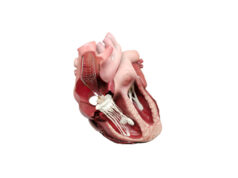The Gate catheter-guided tricuspid atrioventricular valved stent (NaviGate Cardiac Structures) has been successfully implanted through the jugular vein into a transplanted heart that was failing due to severe tricuspid valve insufficiency. The successful implantation of the valve—at Policlinico of the University of Padua, Italy—represents the first European patient to be treated with the NaviGate Cardiac Structures tricuspid replacement heart valve.
According to a press release, the patient was awake and showing improved renal function three hours after the intervention. Now, approximately two months post-procedure, they continue to demonstrate clinical improvement and excellent valvular function. This brings the total number of Gate tricuspid implants without 30-day mortality to three.
The patient, a 67-year-old male with a long history of cardiac conditions received a heart transplant in 1990 for post-ischaemic dilated cardiomyopathy and had a host of comorbidities. Since the beginning of 2017, he has had five hospitalisations for heart failure due to severe regurgitation of the tricuspid valve of his transplanted heart. He was released home (five days after the procedure), the Gate showed a transvalvular gradient of 2mmHg with a trivial perivalvular leak. Also notable was that at discharge the patient’s renal function had improved significantly and a dramatic reduction in diuretics was prescribed.
Rodolfo Quijano, president and chief executive offer of NaviGate Cardiac Structures, says: “This is the first size-52mm Gate tricuspid valve implanted, and the first tricuspid valve replacement in a failing transplanted heart in one of the leading cardiac centres in Europe. Our team is working diligently to reach the initiation of clinical trials in various centers in Europe from where we have received requests for our tricuspid replacement valve.”










